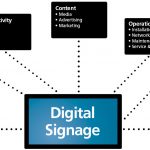It all began with Google’s motto: “Do no evil.” But I always asked my students whether they could trust Google to do no evil with their data, and if they do trust it, do they trust anyone who takes over Google to do the same? Trust and privacy are ours to maintain and we should not give them up so easily for convenience. Naturally, the Facebook breaches of privacy and Mark Zuckerberg’s assertion that ‘privacy is dead’ reveal his beliefs and even motives.
Disturbing to say the least. A few months ago I wrote about the Facebook using us as lab rats report, only to find it getting worse now. We are more than lab rats: we are exposed beyond our imagination.
This is all done in the name of ‘marketing’ and marketing strategies – which is why, as I said repeatedly before, the very concept of marketing nowadays concerns me a great deal. It has been transformed into some AI monster that pursues us relentlessly, and as AI continues to expand and become more sophisticated, it worries me even more. See this for example from the Guardian about an insurance company and what they would have gleaned from FB data:
“Facebook users who write in short, concise sentences, use lists, and arrange to meet friends at a set time and place, rather than just “tonight”, would be identified as conscientious. In contrast, those who frequently use exclamation marks and phrases such as “always” or “never” rather than “maybe” could be overconfident.”
The most disturbing of all is this: Facebook sent a doctor on a secret mission to ask hospitals to share patient data. Even our medical records are not safe? Apparently nothing is safe nor sacred any more.
 Digital signage: also called dynamic signage, is a specialized form of slivercasting in which video or multimedia content is displayed in public places for informational or advertising purposes.
Digital signage: also called dynamic signage, is a specialized form of slivercasting in which video or multimedia content is displayed in public places for informational or advertising purposes.